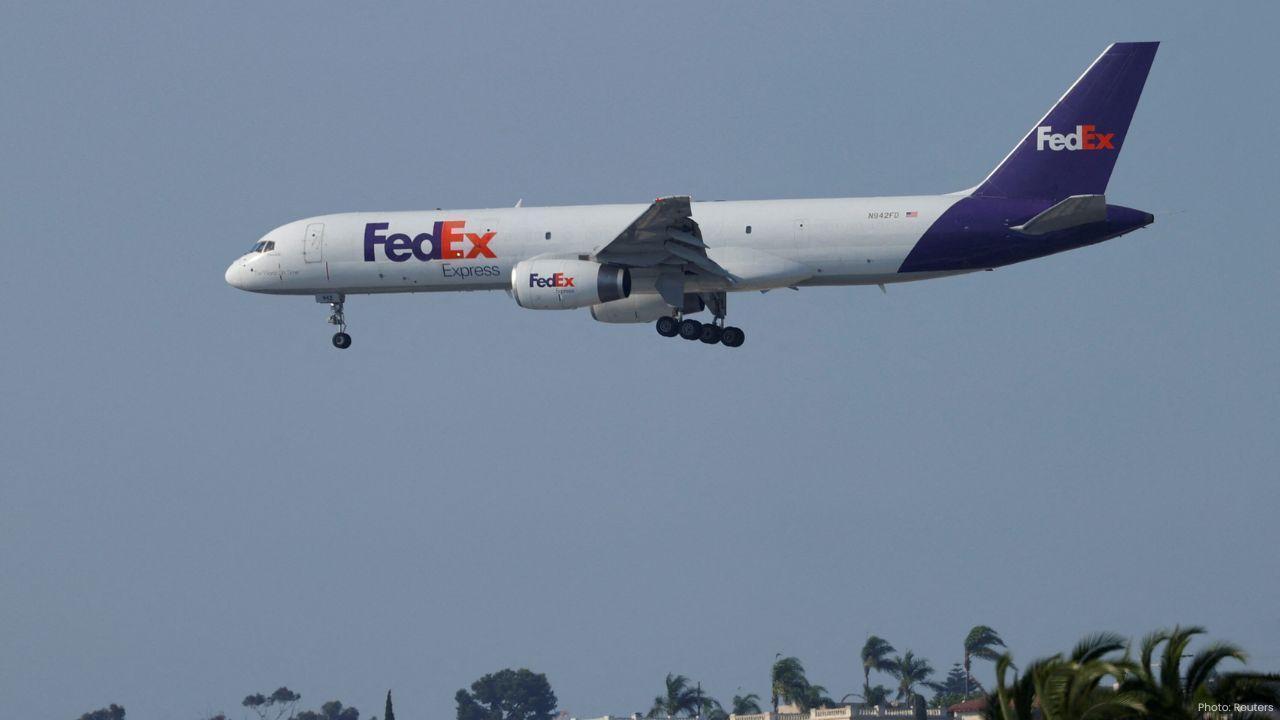
Post by : Meena Rani
FedEx is ramping up its healthcare logistics portfolio as the sector continues to fuel growth across its global air freight operations. Healthcare accounted for nearly $9 billion in revenue in fiscal year 2025, according to company executives. During the Q1 FY 2026 earnings call, FedEx Chief Customer Officer Brie Carere emphasized the importance of the segment, noting that almost 50% of U.S. export weight growth came from healthcare-related air freight shipments.
Carere highlighted that FedEx’s healthcare strategy is delivering results, with momentum in new business onboarding strengthening the carrier’s global air freight performance.
Strengthening Healthcare Capabilities
To further enhance its competitive edge in healthcare logistics, FedEx has invested in certifications and infrastructure tailored to the pharmaceutical supply chain.
In May 2025, the company announced that its Global Healthcare Quality Program earned a Center of Excellence for Independent Validators (CEIV) Pharma Corporate Certification from the International Air Transport Association (IATA). This certification sets internationally recognized standards for handling time-sensitive and temperature-controlled pharmaceutical shipments.
Key FedEx facilities across the U.S., including those in North Carolina, Texas, California, Florida, and New Jersey, were officially CEIV Pharma-certified in May 2025. Its major hubs in Memphis (MEM), Tennessee, and Indianapolis (IND) have held CEIV Pharma certifications since 2024.
Financial Momentum from Healthcare
FedEx’s healthcare investments have not only improved operational standards but also contributed significant revenue. The company secured more than $500 million in quality agreements during FY 2024, strengthening its foothold in high-value healthcare logistics contracts.
Healthcare-related shipments are critical because they require specialized handling, stringent quality measures, and reliable cold-chain solutions, enabling FedEx to command premium pricing compared to general cargo.
Network and Operational Upgrades
FedEx is simultaneously pushing ahead with broader operational upgrades to support healthcare expansion. These include its Network 2.0 transformation, the DRIVE program, and its Tricolor air freight initiative, all aimed at optimizing efficiency, reducing costs, and creating capacity for specialized cargo.
By integrating healthcare-focused improvements into its larger network overhaul, FedEx is positioning itself as a leading provider in the global pharmaceutical and medical logistics sector.
Competitive Landscape
FedEx is not alone in its pursuit of the growing healthcare logistics market. Competitors are also making aggressive moves:
DHL operates a temperature-controlled air cargo service out of Indianapolis (IND), used by leading pharmaceutical companies such as Siemens and Eli Lilly.
UPS has publicly set a target to double its annual healthcare revenue by 2026, underscoring the sector’s importance to the big three integrators.
This intensifying competition reflects a global surge in demand for reliable cold-chain logistics, driven by biopharmaceutical innovation, aging populations, and rising cross-border healthcare trade.
Healthcare Logistics: A Growing Market
The healthcare supply chain is undergoing rapid transformation, with demand for specialized solutions increasing due to new treatments, stricter regulatory standards, and the expansion of biologics and cell therapies. Industry observers note that companies like FedEx, UPS, and DHL are racing to establish themselves as trusted partners for pharmaceutical giants and biotech firms.
FedEx’s recent progress, particularly the CEIV Pharma certifications across multiple U.S. facilities, places it in a strong position to capitalize on this demand. The certifications not only validate compliance with global standards but also signal reliability to healthcare shippers who prioritize product integrity.
With $9 billion in healthcare revenue already achieved in FY 2025, and continued momentum into FY 2026, FedEx’s healthcare strategy is proving to be a robust growth engine. Executives expect further scaling as the company leverages its network modernization efforts alongside specialized cold-chain capabilities.
As healthcare becomes a defining vertical for logistics companies, FedEx’s investments in quality certifications, infrastructure, and operational efficiency signal its ambition to remain at the forefront of this competitive sector.
FedEx healthcare logistics, CEIV Pharma certification, FedEx air freight










Advances in Aerospace Technology and Commercial Aviation Recovery
Insights into breakthrough aerospace technologies and commercial aviation’s recovery amid 2025 chall

Defense Modernization and Strategic Spending Trends
Explore key trends in global defense modernization and strategic military spending shaping 2025 secu

Tens of Thousands Protest in Serbia on Anniversary of Deadly Roof Collapse
Tens of thousands in Novi Sad mark a year since a deadly station roof collapse that killed 16, prote

Canada PM Carney Apologizes to Trump Over Controversial Reagan Anti-Tariff Ad
Canadian PM Mark Carney apologized to President Trump over an Ontario anti-tariff ad quoting Reagan,

The ad that stirred a hornets nest, and made Canadian PM Carney say sorry to Trump
Canadian PM Mark Carney apologizes to US President Trump after a tariff-related ad causes diplomatic

Bengaluru-Mumbai Superfast Train Approved After 30-Year Wait
Railways approves new superfast train connecting Bengaluru and Mumbai, ending a 30-year demand, easi